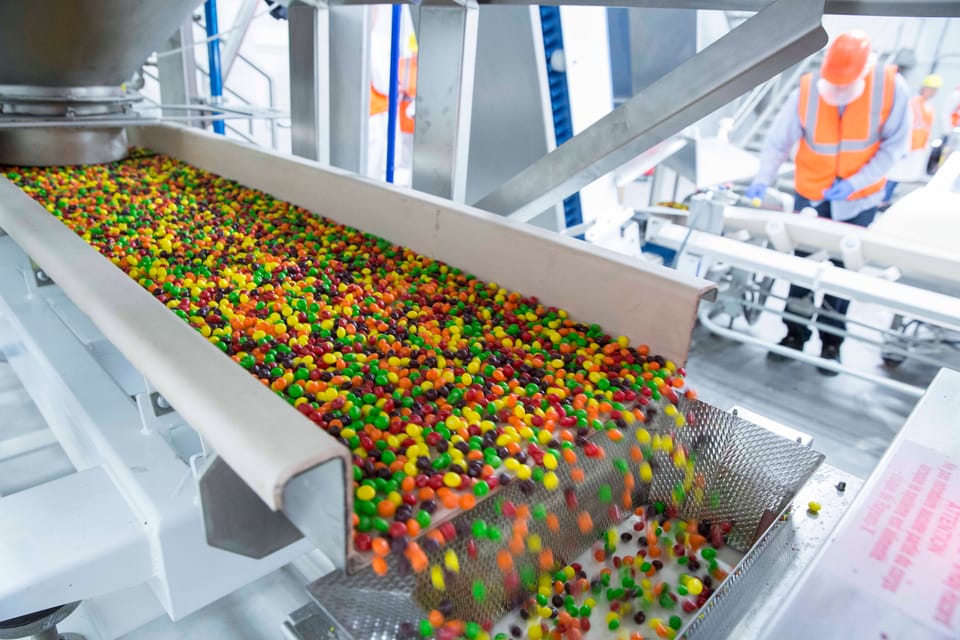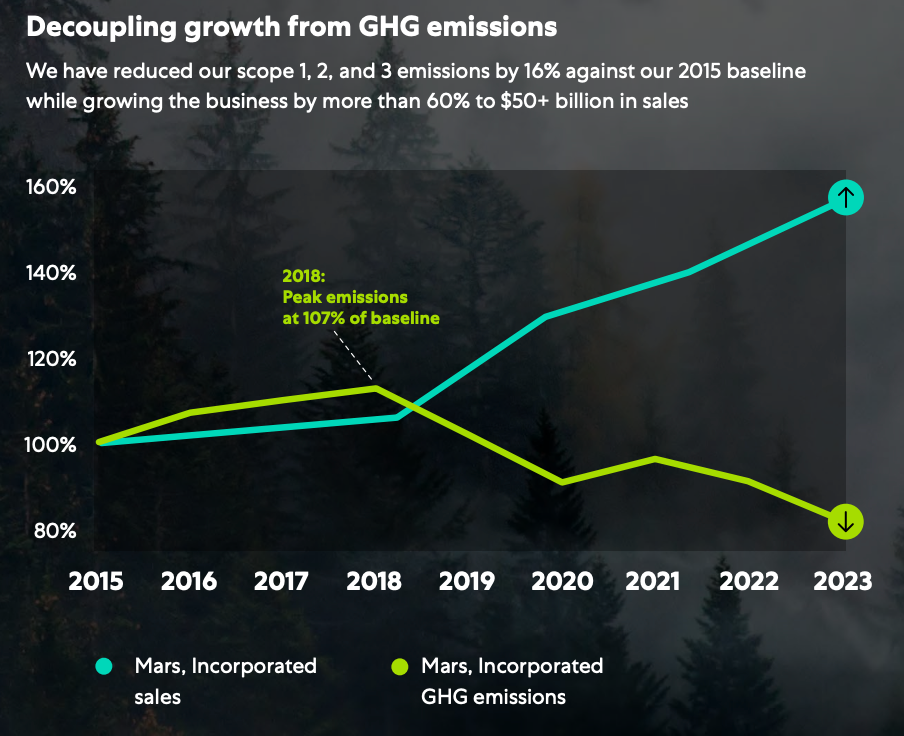Mars has decoupled growth from emissions over the last five years

2023 was the fifth year that Mars emissions decreased or stagnated while global sales increased, suggesting that the company decoupled growth from emissions after its carbon footprint peaked in 2018.
The snacking and pet food giant reported US$50 million in net sales in 2023, up from US$47 million the previous year. At the same time, emissions went down by close to 4%, from 30.4 million tonnes to 29.3 million tonnes of CO2 equivalent.
Last year, Mars recalculated its baseline carbon footprint, adding more than 2 million tonnes to its initial baseline of about 32.9 million tonnes of CO2e. Considering this new baseline – which will be officially restated by the end of 2024 – Mars estimates its year-on-year GHG reduction at 8% by the end of 2023.
This brings the company’s total GHG reduction since 2015 to 16% or 5.7 million tonnes of CO2e – while in the same period, revenue has grown by more than 60%.

Emissions decoupling: key for business ambitions
Decoupling growth from emissions – an elusive goal few companies have achieved to date – is crucial for Mars to achieve its business ambitions, including doubling its snacking revenue in the next decade, while also meeting its climate goals.
The company is aiming for a 50% GHG reduction across all scopes by 2030, a target split as follows: 63% reduction in absolute Scope 1 and 2 emissions, 42% for absolute Scope 3 emissions and 45.5% for Scope 1 and 3 forest, land and agriculture (FLAG) emissions.
Barry Parkin, Mars Chief Sustainability and Procurement Officer, said: "Our latest carbon reductions show we are on track to deliver a 50% reduction by 2030. While we're proud of this progress, we know we have more work to do, and we look forward to continuing to scale our progress. It is critically important to strengthen our programs with farmers to help the transition to climate smart and regenerative agriculture."
Mars agricultural emissions goals
The company notes in its 2023 sustainability report that almost 60% of its value chain emissions comes from agriculture, making investments in “climate-smart” agricultural practices a key priority.
Mars is aiming to convert more than 1 million acres of the agricultural land used for its products around the world to regenerative agriculture. As part of this drive, the company has set up programmes to support more than 2,200 farmers across the US, Poland, France, Belgium, Mexico and Brazil in implementing more climate-friendly practices.
In a recently announced programme, the firm committed to a US$47 million investment over the next three years to source lower-emissions dairy.
Mars is also a member of the Sustainable Markets Initiative Agribusiness Task Force alongside the likes of Bayer, McCain Foods, McDonald’s, Mondelez, PepsiCo and Waitrose.
The task force is exploring new business models that could make regenerative agriculture – a set of practices proven to improve soil health, biodiversity protection and nutritional quality – more viable for farmers: despite a positive long-term return on investment, the transition currently leads to a 30-60% profit decrease in the first three to five years.







Member discussion